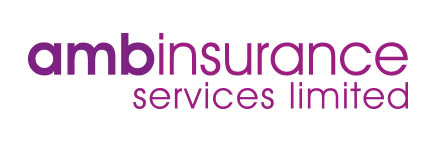
How to spot the signs of identity theft, how to reduce your risk level and what to do if it happens to you
What is your identity worth? To criminals, identities are a valuable commodity. Names, addresses, dates of birth and other personal details are a key that opens the door to bank accounts, credit cards, state benefits and passports, all in your name. A criminal might, for example, order goods in your name or take out multiple loans. It is often impossible to retrieve any money or prevent damage to your credit rating.
Identity theft is not a new threat, but criminals are finding new ways to target their victims. Previously, identity theft was associated with stolen documents, such as driving licences or utility bills. Now fraudsters can also obtain information through mobiles and the internet.
Unfortunately, identity theft is reasonably easy to do. The average household recycling box usually contains several un-shredded personal documents which can be used for fraud. Internet users can also be careless with passwords, for example leaving them on notes by their computer or using an easy-to-guess formulation like ‘password123’ for their accounts.
Tell-tale signs of identity theft
If you know what to look out for, you will be one step ahead in limiting your exposure to this type of crime. One obvious risk indicator is having key documents stolen, for example during a break-in or if your bag is snatched. Watch out for other irregularities, too; strange entries on your bank or credit card statements, utility bills that do not turn up or bills and receipts in your name for goods you know nothing about. It’s easy to dismiss these as an error, but they could be crucial signs of fraud.
Likewise, you should be on the alert if you are refused financial services, credit cards or loans without knowing any reason why your credit rating would be low. Other important indicators are if you apply for state benefits and told you are already claiming, or if you receive letters from solicitors or debt collectors demanding payments for debts you know nothing about.
Reducing your risk level
A little vigilance goes a long way in avoiding identity theft. Shred private documents such as bank statements and utility bills before throwing them into the recycling bin, and store your passport, driving licence and other important documents in a secure place.
Take care to check through bank and credit card statements, following up on any unusual entries. If you move house, make sure your mail is redirected to your new address or you may find that important letters and bills fall into the wrong hands.
You can also protect yourself by following common sense, for example by only buying from well-known websites with ‘https’ URLs and clear returns and privacy policies. Make sure you set strong passwords using upper and lower case letters, numbers and symbols and keep your computer safe with up-to-date antivirus software. If you receive a suspicious call or email asking for personal information, do not give out your details.
It is also a good idea to ensure your insurance policy covers you for identity theft. The cost of identity theft is not limited to what the criminals get away with; you may also be out of pocket if you have to take time to defend debt claims, liaise with police and restore your credit rating.
What to do if it happens to you
If you suspect that you have been targeted, take action immediately. Make a report to the police within 24 hours and notify your bank and credit card company without delay. Check through your account records carefully so you can determine the extent of the theft.
Dealing with identity theft can be stressful, upsetting and time-consuming. Insurance cover can provide much-needed assistance with the process of recovering from the crime, for example through phone helplines and paying the legal costs of defending your name and recovering your credit status.
Have you taken steps to reduce your risk of identity theft? By protecting your personal data and ensuring you have insurance cover in place, you can rest assured that you are doing all you can to protect yourself. Why not check your insurance policy to see if you are covered? Give amb a call for more information 01782 740044
